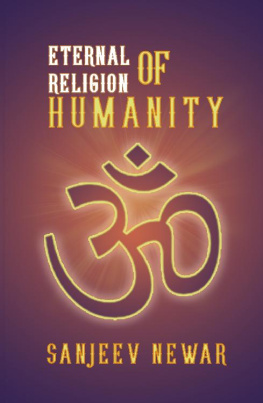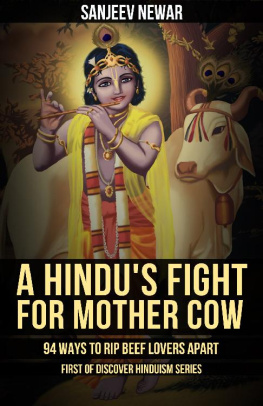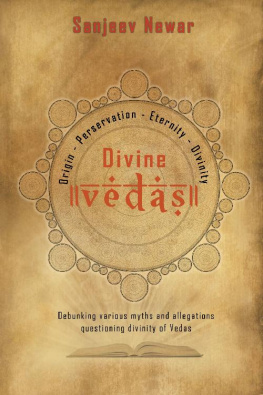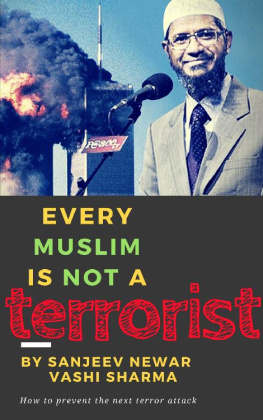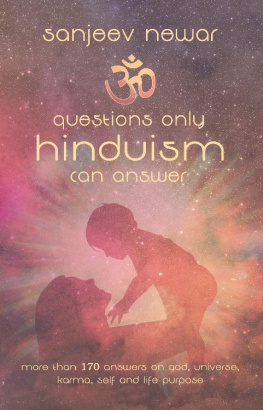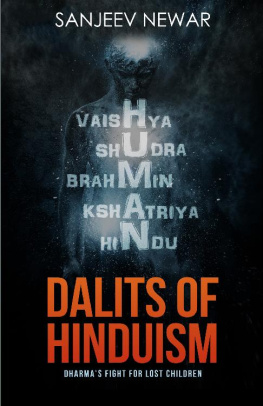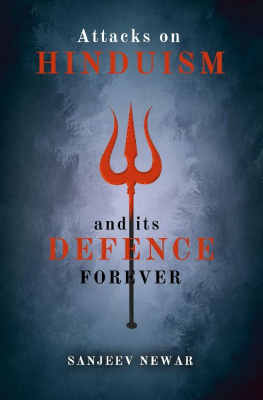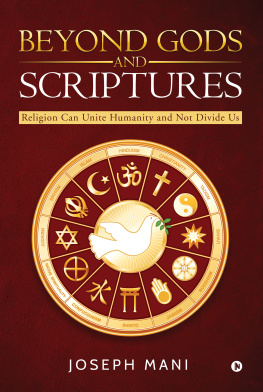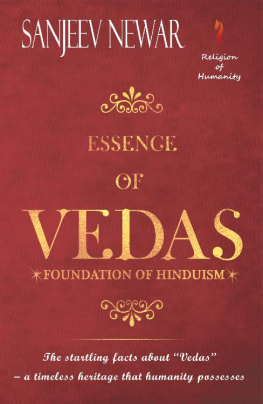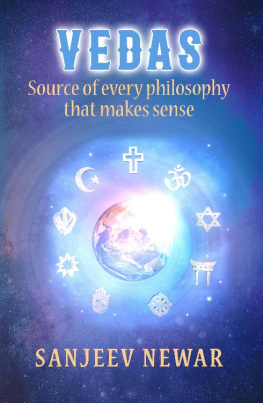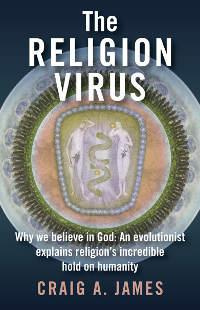
Eternal Religion of Humanity
Copyright 2016 by Agniveer
All rights reserved. This publication may not be reproduced, stored in a retrieval system, or transmitted in whole or in part, in any form or by any means, electronic, mechanical, photocopying, recording, or otherwise, without the prior written permission of Agniveer.
This publication is designed to provide accurate and authoritative information in regard to the subject matter covered.
For information contact
books@agniveer.com
Book Design and Composition by Ronak Trivedi
First Edition: December 2016

Sanjeev Newar
Other Books By Author
The Science of Blissful Living
Essence of Vedas
Questions Only Hinduism Can Answer
Divine Vedas
A Hindu's Fight for Mother Cow
Attacks on Hinduism And its defence forever
Beyond Flesh there lies a human being
Dalits of Hinduism
Conversations on Yoga
Preface
In the world many religions exist today; all seemingly claim to be the best. Religion has become the prime pretext for all the violence, terrorism, fights and havoc all around the world. Religion seems to be the primary theme governing the world politics and society, yet most of us fail to understand the apparent confusion of so many religions and do not know what exactly it is all about.
Most of us simply know the names of major religions Hinduism, Islam, Christianity, Buddhism, Jainism, Sikhism, and Bahai. We keep hearing how all religions are equal and how they all teach us the same good things. We also keep hearing a lot of irrational concepts from all these religions, and hence, tend to believe somewhere deep inside that we should not take these concepts so seriously.
Religion has become PSPO, a famous advertisement of some fan company, where people used to say that this particular fan has PSPO in it. Then someone would ask: What is PSPO? and no one would know what it is. Same is the case with religion.
Taking advantage of this gross confusion, many self-proclaimed experts of comparative religions would then start marketing their own theories on religions to convince people why only their religion is true, and rest are false. To increase the number of their followers, on the less extreme side, these so called experts would lure people into the religious conversion. On the more extreme side, religious leaders would brainwash their followers to hate others who do not belong to their cult and even provoke them to take lives of innocents to secure their place in imaginary heaven. Other more docile and tolerant spiritual leaders would benefit from this gross confusion by opening their sub-branch within their religion. They make their followers inactive. They would convince their followers into believing that God will take care of their problems as long as they stick to their sub-branch. This inactiveness has given birth to the biggest populations of spectators who would simply wait for the incarnation God to solve all the problems of the nation.
All this has caused nothing but more confusion among the people and dragged them far away from the true understanding of the concept of religion and its purpose. This gross confusion has become the biggest threat to the unity of human beings.
Without judging which religion is the best, with the sole purpose of uniting humans with the common bond of Humanity, this book explains why and how people follow religions. With enlisting the core beliefs of the major religions exist in the world today, the book provides the most effective framework to understand religious confusions more clearly, and also logically guides readers towards the way out of this religious mess.
This book, first of the Religion of Humanity series, contains the essence of Eternal religion of humanity Vedic Religion and answers the most fundamental questions which anyone with the honest intention of knowing Vedic Religion Religion based on Eternal knowledge - would ask. For example: What is Vedic Religion? How does Vedic Religion different from other religions? How does one know this is the only true religion of Humanity? How can one start following this eternal religion of humanity? Does one need to believe in God or religious book blindly to be a follower of Vedic Religion? What benefits will it bring if one start following Vedic Religion?
Please note, this book does not try to propagate new religion. Instead, be it Hindu, Muslim, Christian or Atheist, this book inspires all human beings to follow their natural trait of accepting the truth and rejecting falsehood, to live more dynamic, peaceful and purposeful life.
If one follows this core trait, then he/she is actually following Vedic Religion Eternal Religion of Humanity.
Sanjeev Newar
December 2016, New Delhi
Table of Contents
CHAPTER 1
UNDERSTANDING RELIGIONS
T his first chapter presents an unbiased layman view of religions as of today. In this chapter, we shall avoid getting too much into the history of the origin of different religions. We shall simply try to put forward a framework to understand the confusion of religion as it exists today, from a common man perspective. This understanding would then help us understand the gravity of the problem of religious fanaticism and the tremendous business that goes all around in the name of religion. The chapter shall provide preliminary pointers and expects the readers to research on the details themselves.
Why Religions exist?
Religions exist because all living beings take birth and then die one day. No one clearly knows what happens after we die. A natural trait of living beings, in general, and human beings, in particular, is to avoid the very thought of self-destruction. This urge for self-preservation has been very critical for nurture and growth of society.
We all see happy people, animals, and insects moving around, and interacting with us and with nature. Then suddenly they turn mum forever. We see all the living beings ultimately meeting this fate. Hence, we all know that the same shall happen to us also one day.
This cruel reality conflicts with our core trait of self-preservation and gives rise to a variety of personalities, complexities and other variations that give colors to what we call life.
Different intellectuals have provided answers to this mystery of what after death? in different manners, and that becomes the genesis of religious thought.
Religion of Scientists and their beliefs
Those claiming to be scientists refute any existence of an afterlife, because they have been unable to find any evidence of that through their crude instruments. However, they also fail to answer following most fundamental questions:
- Who is the I observing and feeling everything?
- Why does I abhor death or self-destruction so much?
- Why are only human the intelligent species and nothing else?
- Who is controlling everything so intelligently?
- How can they claim to have most accurate instruments to measure and negate the existence of the afterlife?
The more rational scientists follow a more reasonable approach. They say that modern science is a conservative approach. It shall comment only on what it can measure and deduce and shall provide no comments on the rest. So they simply remain agnostic to the presence of afterlife or a controlling mechanism.
This agnosticism or scientificism is the most basic human religion for the most paranoid among us who trust only what their
Next page
